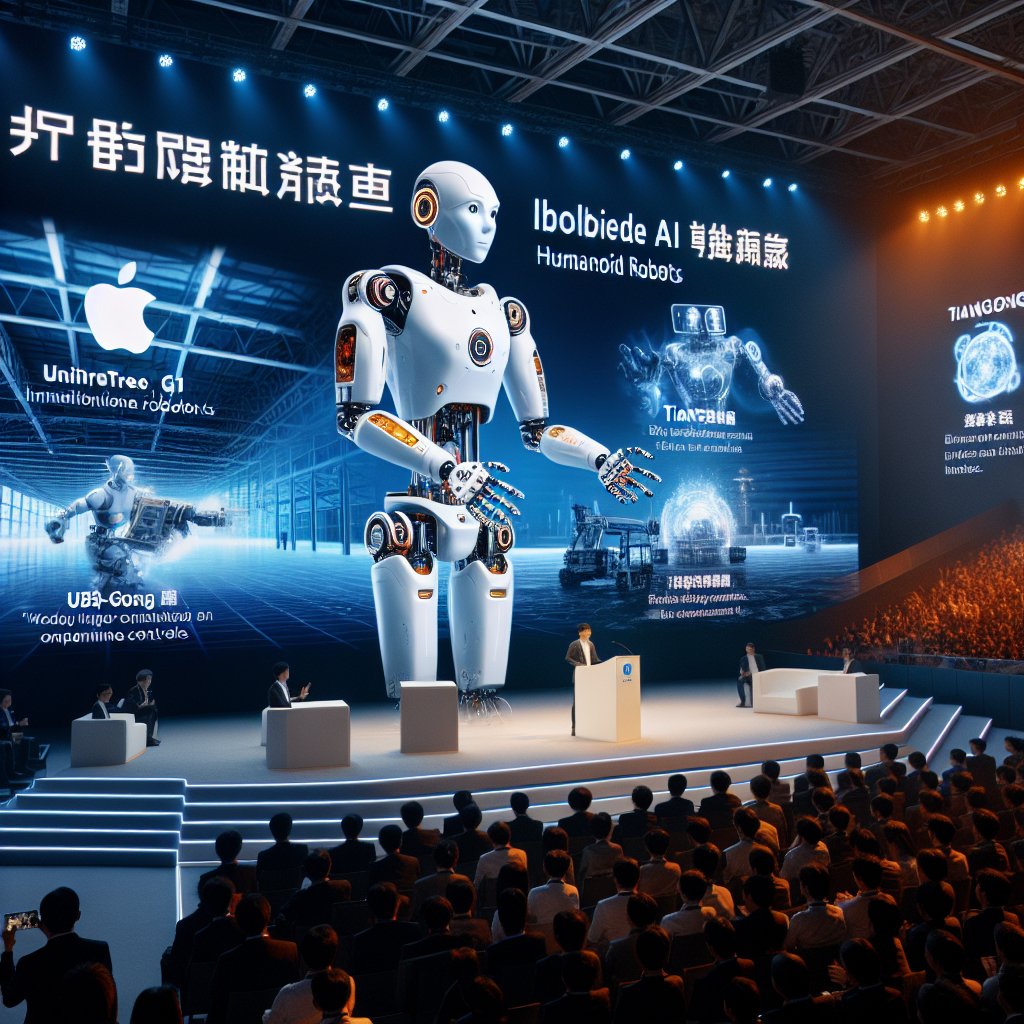Image created by AI
AI-driven Humanoid Robots Make Waves at 2024 World Robot Conference
BEIJING, Aug. 24 - The 2024 World Robot Conference in Beijing has become a global stage for revolutionary advancements in artificial intelligence (AI) and robotics. At this grand event, AI-powered robots have once again captured the limelight, demonstrating the transformative impact they are poised to have across various sectors.
Among the robots showcased, Unitree G1, brought forth by a Hangzhou-based startup Unitree, has drawn considerable attention. This humanoid robot is not only visually striking due to its futuristic design but impresses with its functionality. It boasts a unification of large models, a robust feature empowering the robot to enhance its capabilities continuously. The G1 can swiftly move at a speed of 2 meters per second and is equipped with three-finger force control hands - propelling it as a strong contender in the robotic market, especially with its competitive starting price of 99,000 yuan.
Advanced algorithms and AI have fueled a significant leap in humanoid robotics, marking a new age of innovation and economic growth. In China, a leader in humanoid robots and AI research, the practical application of these technologies is burgeoning. Robots once limited to performing eye-catching stunts are now taking on functional roles within industrial environments, accurately performing tasks like quality inspection and intelligent transportation.
UBTECH Robotics revealed its latest humanoid creations at the conference, already operational in factories of prominent car manufacturers. These robots are beginning to achieve efficiency levels comparable to human workers, with expectations to reach near-perfect efficiency shortly, promising to work continuously and surpass human productivity.
Experts envision a collaborative future where humanoid AI robots work alongside humans, especially in hazardous or strenuous conditions. Greg Ge, an authority in humanoid robot movement control, believes that this partnership will become more predominant and robots will play an essential role in everyday life.
Another highlight of the conference was "Tiangong," an embodied AI robot designed by the Beijing Embodied Artificial Intelligence Robotics Innovation Center, nicknamed HUMANOID. Through its advanced visual-language model, Tiangong can interact with humans, understand commands, and perform tasks seamlessly. This interaction heralds embodied AI—AI with a physical form—as not only a friendly presence but as an integral assistant in future daily scenarios.
As per Kong Lei, the development of these embodied AI robots will lead to substantial production with over 10,000 units planned by 2026. The rise of AI is deemed the 'iPhone moment' for humanoid robots by industry leaders like Xiong Youjun, indicating that the dream of intelligent, cooperative robots is closer to becoming a tangible reality than ever before.










